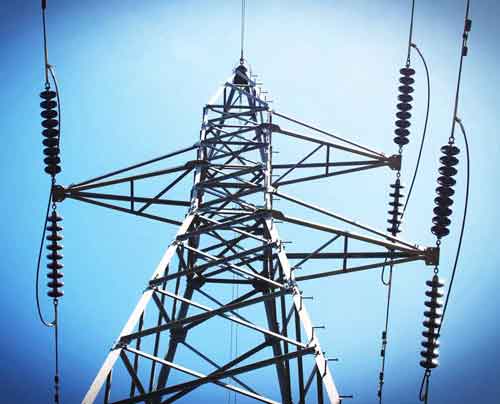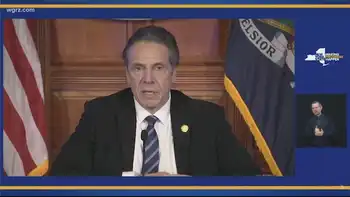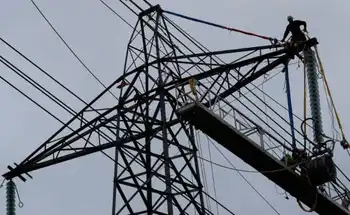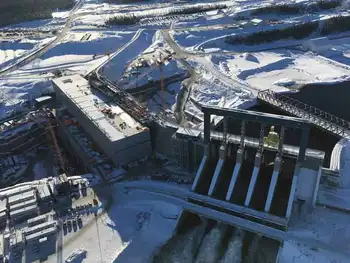WASHINGTON -- - Tough Going as Negotiators Hammer Out Energy Bill
WASHINGTON -- Six weeks after the worst blackout in United States history, Congressional Republicans are entering the difficult final stage of negotiations over an energy policy that goes far beyond electricity issues to encompass a host of power initiatives, including new coal and nuclear plants and stepped-up domestic oil production.
The authors of the developing legislation had hoped to bring a measure before a joint House-Senate conference committee soon. But the chairman of the conference committee, Senator Pete V. Domenici, Republican of New Mexico, said recently that negotiators were still thrashing out agreements on central elements of the bill, like electricity legislation, increased use of ethanol, aid for an Alaska natural gas pipeline and industry tax breaks.
"It is pretty tough," Mr. Domenici said, suggesting that the deadline could slip.
Resolving some of those same issues, which are fraught with political and regional tensions, has stalled energy legislation before in Congress. Backers of the legislation are counting on the blackout to provide momentum to carry it over the finish line and allow the passage of initiatives that have been on the industry's wish list for years.
"It includes provisions we have sought for a decade now," said Jeff Eshelman, a spokesman for the Independent Petroleum Association of America. "In order to get more oil and natural gas for this country, we need access to land where the resources are located, we need access to capital and we need regulatory reform."
Critics of the measure say it is being written almost solely by Republicans with ties to power producers and is skewed too heavily in the industry's favor.
"Rather than crafting a long-term energy strategy that balances conservation with supply and alternative sources with investment in the grid, the Republicans are advancing the energy industry's short-sighted goal of drilling America first," said Senator Bob Graham, a Florida Democrat and presidential candidate on the conference committee. "At this point, industry lobbyists are effectively writing this bill."
With talks continuing over major parts of the bill, the last-minute lobbying is getting fierce, as those with a stake make one final push to get their interests protected or make sure their competition does not win some advantage, a Republican aide said. Major energy legislation comes along infrequently, with the last broad bill passed a decade ago.
"This is the mother lode," said Frank Maisano, an energy lobbyist working for producers of a gasoline additive that want some legal protection in the new bill.
On the crucial issue of electricity, Mr. Domenici and others say negotiators are still trying to bridge a divide between Southern and Western lawmakers who do not want utilities forced to join regional transmission groups and those from the Northeast and Midwest who see such groups as central to preventing future blackouts.
There are also details to be worked out covering the corn-based gasoline additive ethanol, which is critical to wining political support for the bill from farm-state lawmakers. Alaskan lawmakers are pressing for federal aid for a pipeline project. Negotiators have also not settled on the level of industry tax incentives to be included in the measure. The White House has pushed for $8 billion, the Senate $13 billion and the House $18 billion or more.
Mr. Domenici and his chief co-author, Representative Billy Tauzin, Republican of Louisiana, have unveiled agreements on new oil and gas drilling incentives, drilling in the Arctic National Wildlife Refuge, hydrogen power research, clean coal and nuclear projects, among other areas.
Some of those proposals have drawn criticism from Democrats and conservation groups, and Mr. Domenici and Mr. Tauzin today released revisions in response to the objections, though many of the changes were technical. The Arctic drilling and a contentious plan to inventory offshore resources remain in the proposed measure at this point.
New attention is also being focused on what is not in the emerging legislation. Lawmakers and interest groups today stepped up pressure on the negotiators to consider a popular plan to require that renewable fuel sources like wind, solar and geothermal power account for 10 percent of the nation's electricity production by 2020. Mr. Tauzin and Mr. Domenici have said they do not intend to put that requirement in their proposal despite two votes on the Senate floor in favor of it.
Fifty-three senators sent the two lawmakers a letter today, urging them to include the fuels requirement. They said the so-called renewable portfolio standard would reduce the nation's growing reliance on natural gas.
Related News

Finland Investigates Russian Ship After Electricity Cable Damage
MOSCOW - In December 2024, Finland launched an investigation into a ship allegedly linked to Russia’s “shadow fleet” following a series of incidents involving damage to undersea cables. The investigation has raised significant concerns in Finland and across Europe, as it suggests possible sabotage or other intentional acts related to the disruption of vital communication and energy infrastructure in the Baltic Sea region. This article explores the key details of the investigation, the role of Russia’s shadow fleet, and the broader geopolitical implications of this event.
The "Shadow Fleet" and Its Role
The term “shadow fleet” refers to a collection…




